I’m a sucker for jazz labels, particularly new ones coming along, finding out the different things they bring to the table.
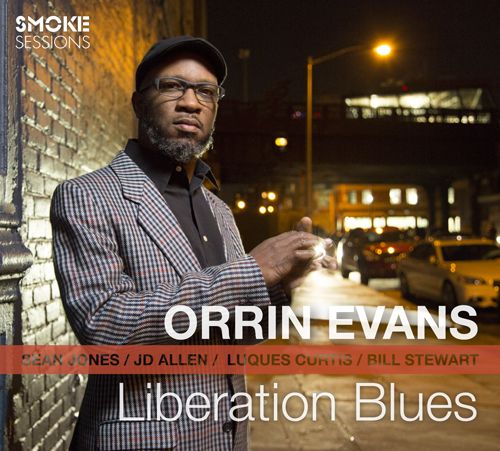
I love great graphics and clever tune titles and all that but above all else it’s great audio sound. You almost know you’re in for a good ride when a certain engineer is involved ideally allied with someone who has a reputation for a good mix. It doesn’t always work out and if several engineers are involved it’s pot luck. My biggest surprise this year was the sound quality achieved in the live arena by one label, an offshoot of Harlem jazz club Smoke. I reviewed a bunch of these Smoke Sessions releases back in the autumn, most of the first batch, and was really impressed, not that every record was a total winner but they all made sense in certain ways, chiefly sound, of course strong musicianship, the look of the album, and the informative sleeve notes too. So that’s my new label of the year. What’s yours? Below I've reprinted reviews of the Smoke Sessions albums I got my hands on (the one missing is mentioned here in this news story). I believe the next one from Smoke Sessions coming in the States is a new one by Eddie Henderson of Mwandishi fame coming not long after Mwandishi did a gig for a one-off Herbie Hancock tribute.
Dedicated to Dwayne Burno who died far too young at the end of 2013, and beginning with the late bassist’s ‘Devil Eyes’ a tune based on the Matt Dennis/Earl Brent song ‘Angel Eyes’ – “Dwayne just took it and went quote-unquote ‘to a darker direction’,” pianist Orrin Evans says in the notes of Liberation Blues – part of a five-part suite that comprises nearly half of the album, recorded at Smoke in Harlem over a couple of nights not long after Burno died. With Evans are tenorist JD Allen, whose recently released excellent album Bloom the pianist played on; as Evans also was with trumpeter Sean Jones and bassist Luques Curtis on Jones’ Im.pro.vise: Never Before Seen; and Bill Stewart all rolling thunder on drums, plus on the encore track ‘The Night Had a Thousand Eyes’ Philly scene singer Joanna Pascale adding some brooding textures. Like Midnight Melodies Miles’ ‘The Theme’ helps wrap up the tail end of the album. All in all, a very sincere technically adroit album that lights up from time to time and vaults genre from hard bop to free jazz with consummate ease, the latter a version of Paul Motian’s edgy ‘Mumbo Jumbo.’
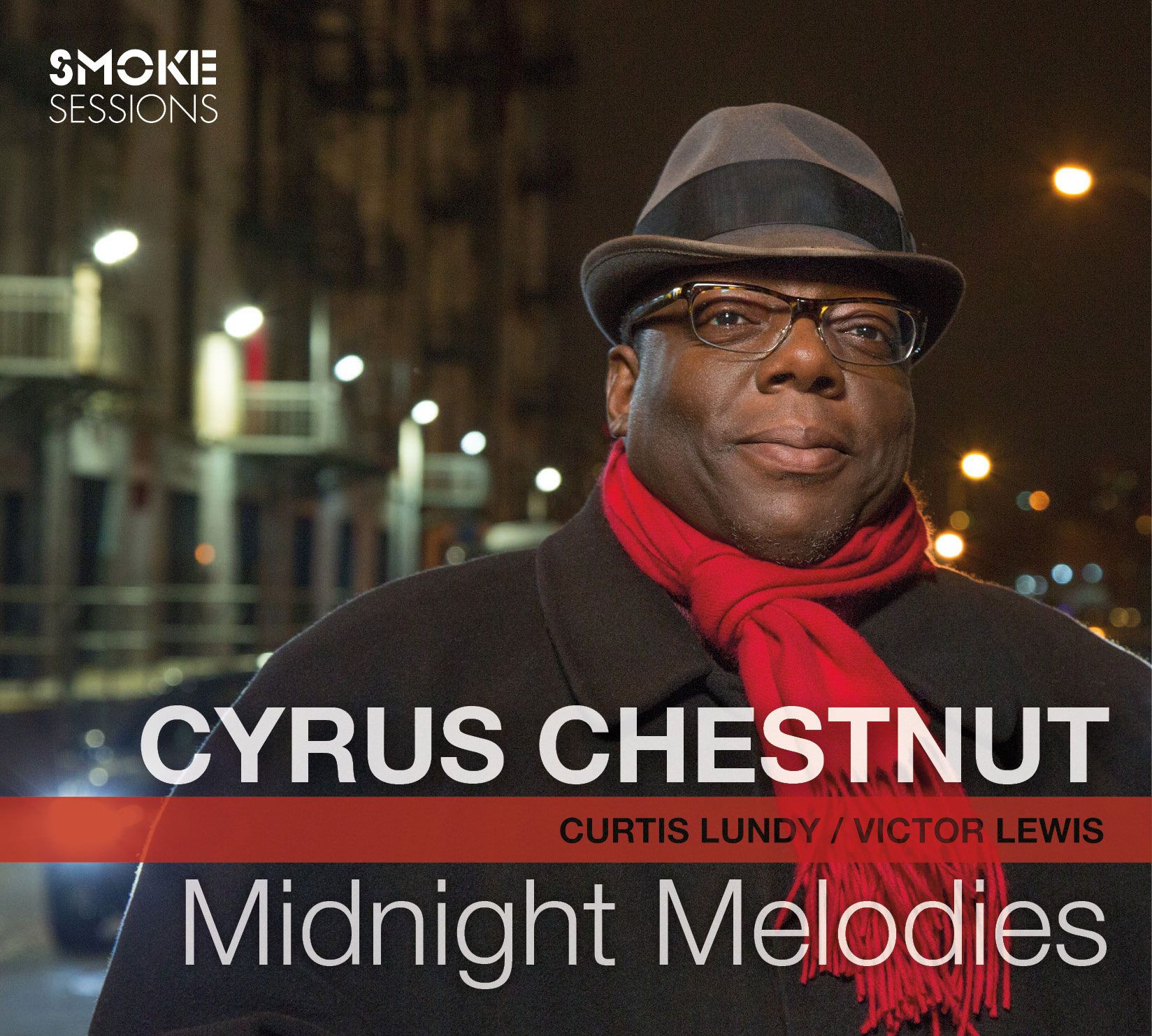
Live albums are the stock in trade of the Smoke Sessions label as well as hard bop, standards, and supreme musicianship. I’ve only heard Cyrus Chestnut in the flesh once a very long way from Harlem, more than 20 years ago, weirdly enough, when the Baltimore man was playing the old Akwarium club in Warsaw as Betty Carter’s pianist. In the excellent interview in the notes Chestnut comes alive quoting La Carter: “Baby Doll, you got to take a chance. You never know what’s going to happen unless you take a chance.” And Chestnut does just that skimming at high speed so outrageously over the changes, a naturally exuberant melodicist and improviser up there in the Oscar Peterson heights, reeling off line after line of the well-chosen tunes on this high-powered trio set. Recorded in November last year over a couple of nights at the Harlem club several tunes are by John Hicks, and there are a couple of Billy Strayhorn’s (when a pianist plays ‘Chelsea Bridge’ so sensitively you know you’ve got to stop everything and just listen) and a couple by the great drummer Victor Lewis who accompanies the ex-Lincoln Center Jazz Orchestra player here along with the fine bassist Curtis Lundy. Less gospelly than Chestnut can be, more silkily comfortable and at ease than on some of his Atlantic albums, the melodies shining like a sun through the carefully clouded bass and squally drums and even the faint shower of appreciative audience noise. By the end and a jaunty take on Miles Davis’ ‘The Theme’ it's a lap of victory.
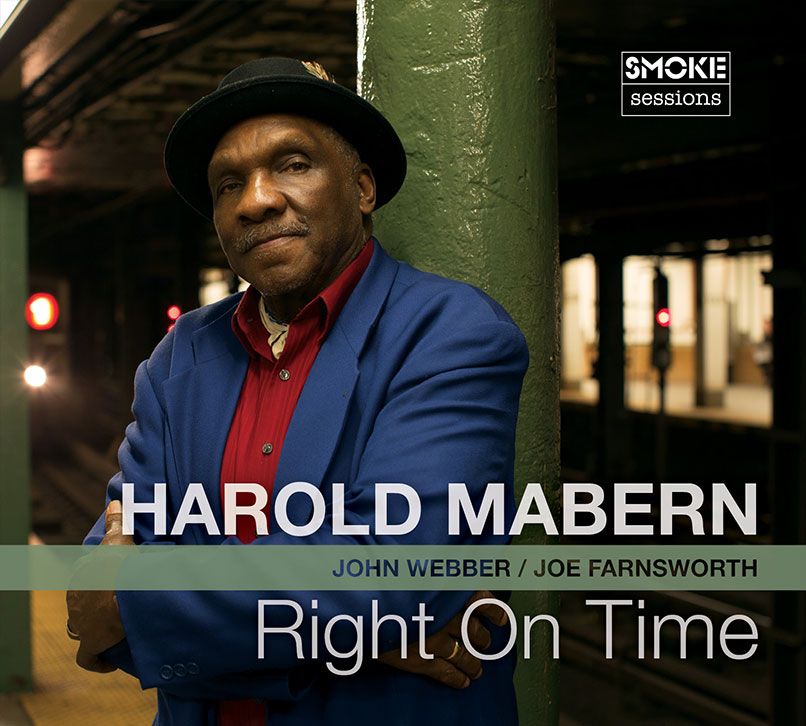
The Smoke Sessions label style within the handsomely liveried eight-panel artwork is to include an interview with the main artist conducted by Damon Smith who begins his conversation with pianist Harold Mabern respectfully and ends with a bit of advocacy, making a push to make Mabern an NEA jazz master. It’s an understandable aim. The veteran Memphisian Mabern, with bassist John Webber and drummer John Farnsworth recording at Harlem club Smoke in March last year over a couple of nights, begins with the now pretty much forgotten Peter Brown and Robert Gans tune ‘Dance with Me’ in a florid Memphisian style that recalls Phineas Newborn Jr, Mabern’s mentor and to whom the album is dedicated, a style also exemplified by the much missed James Williams who must have learnt a good deal from Mabern and Newborn stylistically. ‘Seven Steps to Heaven’ with less an emphasis on the odd meter than on speed and expression follows and the rest of the album is full of fairly familiar tunes best of all ‘My Favourite Things’ with a bit of ‘Lullaby of Birdland’ tucked in as part of the flourish in the coda. There’s room too for Mabern’s own tune ‘Edward Lee’ dedicated to Lee Morgan. In the sleevenote interview Mabern praises the club’s piano something Eric Reed also mentioned in the notes to Groovewise. Mabern also mentions how he was taught by DeeDee Bridgewater’s dad at high school (who also taught Charles Lloyd among other luminaries) and touches fascinatingly on his Chicago days with Walter Perkins’ MJT+3 who had success with the gloriously laidback but now little remembered ‘Sleepy’. Powered and seasoned by the blues this is an album to put a smile on your face.
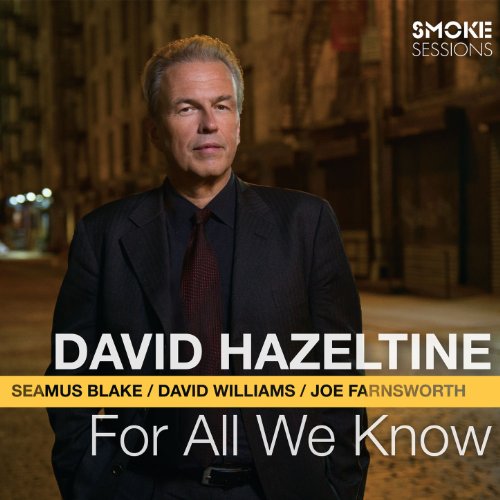
Another of the batch of Smoke Sessions releases just made available this one features Seamus Blake once again (he’s on Eric Reed’s Groovewise) joining another pianist leader here, David Hazeltine, bassist David Williams, and drummer Joe Farnsworth (who appeared on Harold Mabern’s Right on Time). Hazeltine’s tune ‘Et Cedra’ opens the album giving Blake loads of space to roam very unselfconsciously. Hazeltine also contributes four other of his own tunes, paying tribute to Cedar Walton who had died just a few weeks before these live sessions on ‘Lord Walton’ as well as ‘Et Cedra’, ‘Pooh’, and ‘My Ship’, based on a Walton arrangement. Eddie Harris, who Hazeltine in the notes recalls playing with when he himself was just a teenager, is celebrated on the composition of the same name. The album also includes versions of Bird’s ‘Cheryl’, and the Van Heusen/Johnny Burke classic ‘Imagination’ a song Hazeltine has often played accompanying singer Marlena Shaw. There’s also a very slow exquisite rendering of ‘For All We Know’, the title track, Blake excelling. Recorded over a couple of nights at Smoke in September last year it’s an album delivered with a lot of love, deeply marinated in the best traditions of the hard bop and modern mainstream line.
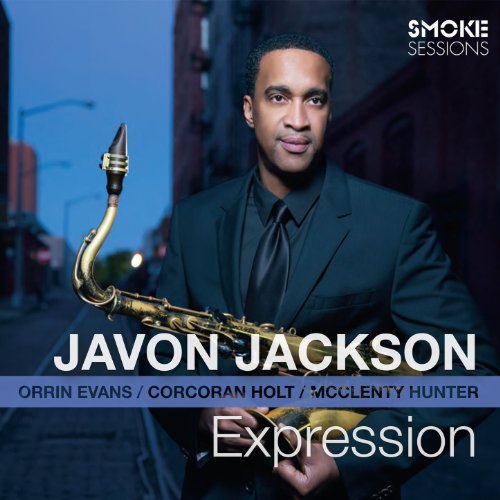
If you’re an unabashed Jazz Messengers fan you’re going to have to rush out and get this, not that it’s orthodox or trying to recreate anything and there’s no trumpeter or a trombone even in sight, as it’s the last, and best, of the eight albums reviewed recently here from the exciting new Smoke Sessions label, catching live jazz in optimum conditions at the Harlem club Smoke in July last year. Javon Jackson, the ex Blakey-ite who had a string of well regarded albums for Blue Note in the 1990s, here with Kenny Garrett men bassist Corcoran Holt and drummer McClenty Hunter plus the tasteful pianist Orrin Evans (playing with Jackson for the first time) coming over all McCoy-like at least at the beginning of ‘Don’t You Worry’ one of his best solos here. Beginning with Ugetsu classic, a tune recorded at another New York club Birdland back in 1963, Wayne Shorter’s joyous swinger ‘One by One’, there’s lots of different stuff to savour among the 10 tracks: later soul anthems mingling with the vintage hard bop and fine originals the pick of which is the ballad ‘Lelia’. Jackson isn’t afraid to play from the heart, tender on Stevie Wonder’s ‘Don’t You Worry ’bout a Thing’ but even better on Ralph MacDonald and William Salter’s ‘Where is the Love’. A real supper club set nothing fancy but going deep to the heart of the whole jazz mystery in the very core of the song is what’s here. ‘Richard’s R.A.P.’ succeeds in being sociopolitically-conscious in the title name too giving some strong extra content in the fine Jackson original itself a composition that pays tribute to the stalwart educational work of the great Richard Davis, allowing Holt a chance to shine, which he grabs with both hands.
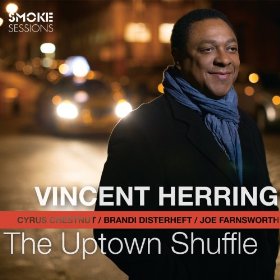
Opening with a flurry alto sax hard-hitter Vincent Herring turns up the gas and drummer Joe Farnsworth simply scorches through Herring’s own tune ‘Elation’ on this quartet outing recorded at Smoke in April last year, with pianist Cyrus Chestnut, who has written the infectiously bluesy title track, and bassist Brandi Disterheft completing the line-up. Herring was best known for his work with Nat Adderley and he also toured with the late Horace Silver, and played for many Christmas stints at the Village Vanguard with another fallen great Cedar Walton. This is a record where all that old school bandstand experience counts and if you are a hard-to-please hard bop fan fear not you’ll want to sit back and let all this sheer expertise delivered by Herring and co wash all over you. It’s slightly odd, however, that there is an intermission announcement at the end of Duke Pearson’s ‘Big Bertha’ (the band never come back as it’s the final track). However, the wave after wave of confident playing on the rest of the album oozing charm and demonstrating a big heart for instance on the Gershwins’ ‘Love Walked In’ and ‘Tenderly’ more than makes up for the oddity, Herring’s warm tone enough to melt a passing iceberg.
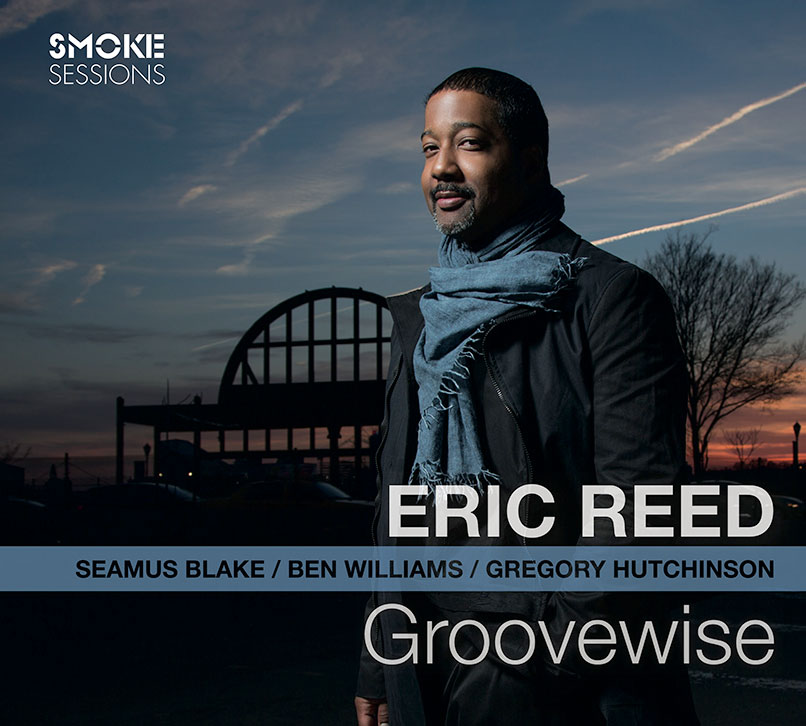
Recorded live over a couple of evenings at New York club Smoke, this solidly presented quartet record from the distinguished Thelonious Monk-influenced pianist Eric Reed, a big part of the Wyntonite world in the 1990s, joined here by the imaginative saxophonist Seamus Blake, Pat Metheny Unity Group bassist Ben Williams, and name drummer Gregory Hutchinson, begins with a Clifford Jordan composition, ‘Powerful Paul Robeson’, from Glass Bead Games an album Reed in the notes says has “this early 70s vibe, soul, and all of that. It was a significant record, especially during that period.”
Groovewise is mostly an album of Reed tunes (it’s not about ‘groove’ in the quasi-funk sense at all, more an unbuttoned connoisseur’s acoustic jazz sound), with Christian McBride’s best known composition ‘The Shade of the Cedar Tree’ the additional compositional input, Blake mining deep down to the very lowest regions of his instrument’s register. Reed pays tribute to “the cats”, referencing Mulgrew Miller on ‘The Gentle Giant’ and Marian McPartland on ‘Una Mujer Elegante.’
The sound quality is excellent, you actually forget, not that you necessarily need to, that it’s a live album as is the playing and overall conception. There’s nicely caught audience reaction, however, at the end of ‘Una Mujer Elegante’ so you can gauge the room ambient sound, and there’s clapping along even on the Bill Withers-channelling ‘Lean on Me’ intro to the title track. Next best thing listening to this to being there breathing the same air in this Harlem room that Reed comments is “musician-friendly and people friendly”. The modern mainstream piano tradition that used to be best exemplified by John Hicks and Mulgrew Miller is in very safe hands.
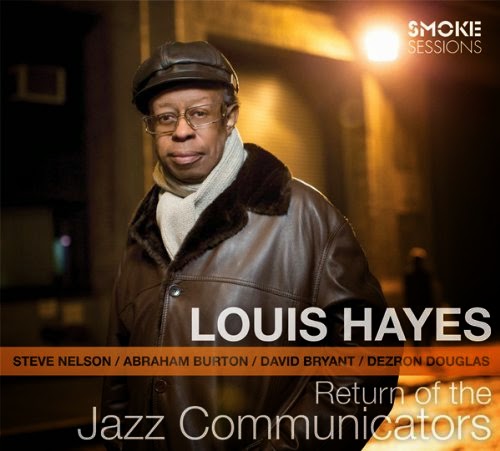
It’s extraordinary how a new label can quickly establish itself with a strong look. One of the nicest features of the Smoke Sessions releases so far are the street photos by Jimmy Katz adorning the covers, and as mentioned in an earlier review the artist interviews contained with the artwork add some personality. In conversation once again with Damon Smith who has also designed the album Hayes talks about the original Jazz Communicators, a band he played in alongside Freddie Hubbard, Joe Henderson, Kenny Barron, and Herbie Lewis initially in 1967 in New York. This “return” is I suppose a bit of a made-up thing as the ex-Cannonball and Oscar Peterson drummer is the only one playing here from the Communicators most sadly no longer with us. But communication is still the name of the game with the swinging Hayes on a set of a dozen tunes recorded at Smoke in November last year. Vibist Steve Nelson, tenorist Abraham Burton, pianist David Bryant, and bassist Dezron Douglas join the drummer (who was 76 when this was recorded), opening up with the attractive Mulgrew Miller number ‘Soul-Leo’. Nelson’s ‘Shape Shifting’ is the overall highlight but there’s plenty of choice (‘Lush Life’, ‘Without a Song’ among the standards, and a band-penned original or two including Hayes tune ‘Lou’s Idea’). A solid hard bop album to get your feet tapping and shoulders swaying. Stephen Graham